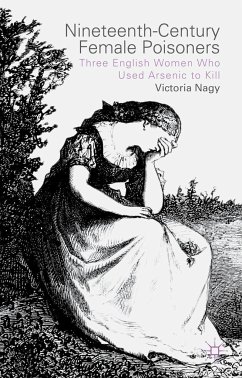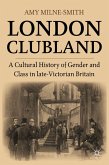Nineteenth-Century Female Poisoners investigates the Essex poisoning trials of 1846 to 1851 where three women were charged with using arsenic to kill children, their husbands and brothers. Using newspapers, archival sources (including petitions and witness depositions), and records from parliamentary debates, the focus is not on whether the women were guilty or innocent, but rather on what English society during this period made of their trials and what stereotypes and stock-stories were used to describe women who used arsenic to kill. All three women were initially presented as 'bad' women but as the book illustrates there was no clear consensus on what exactly constituted bad womanhood.
Bitte wählen Sie Ihr Anliegen aus.
Rechnungen
Retourenschein anfordern
Bestellstatus
Storno








